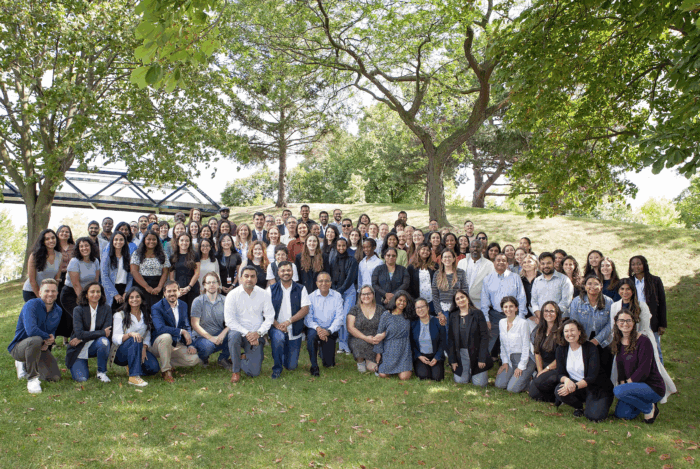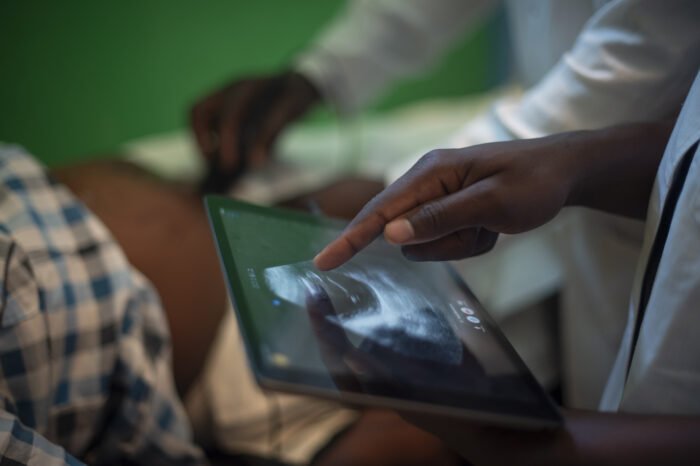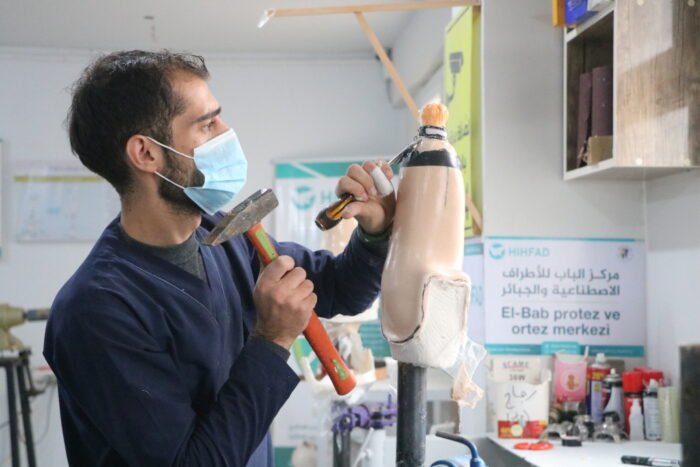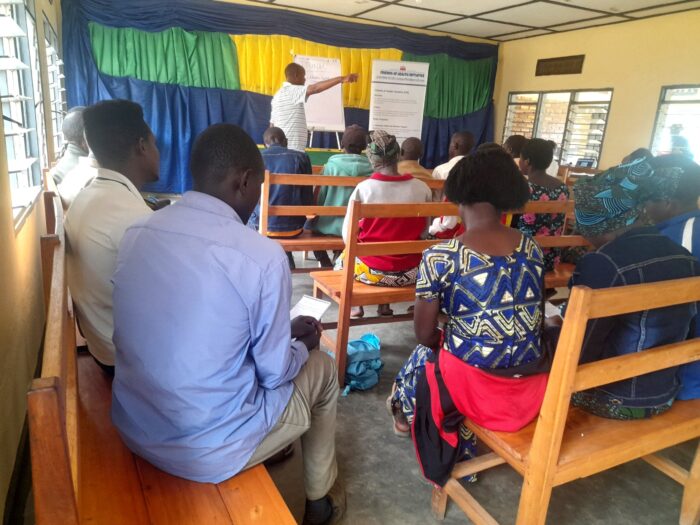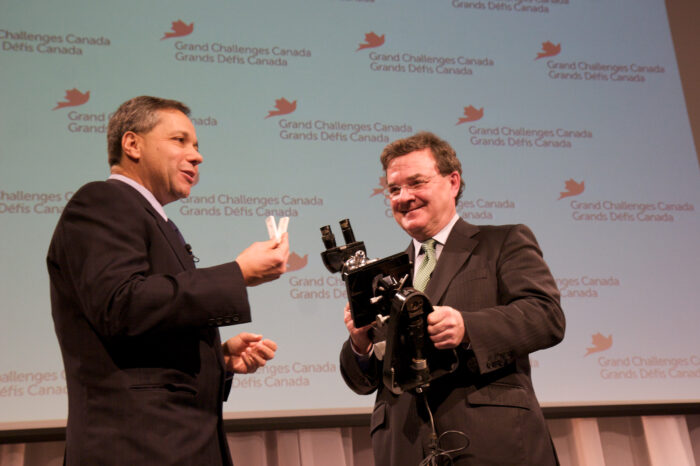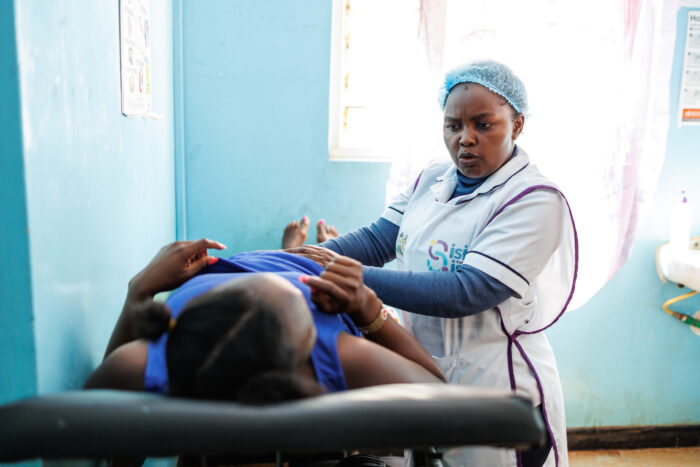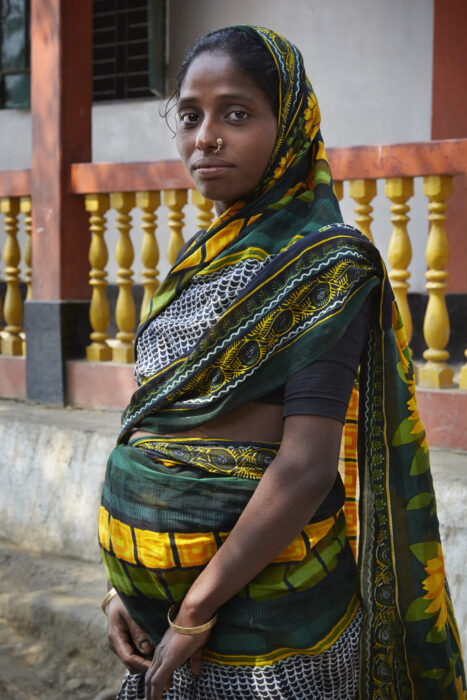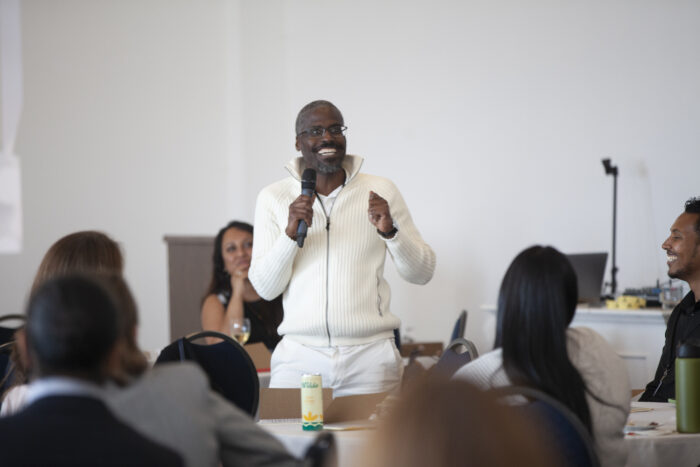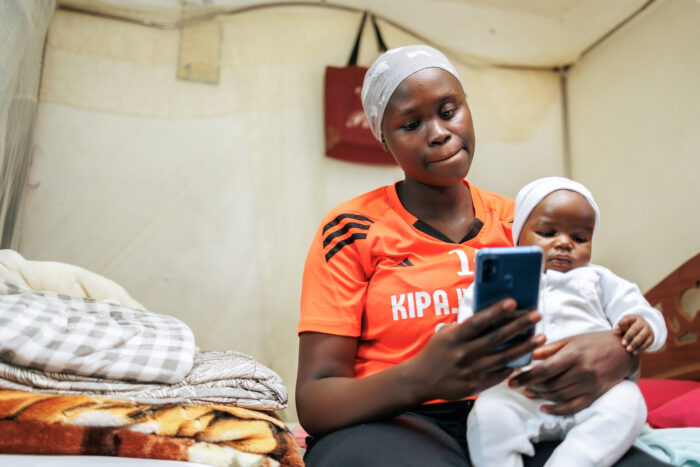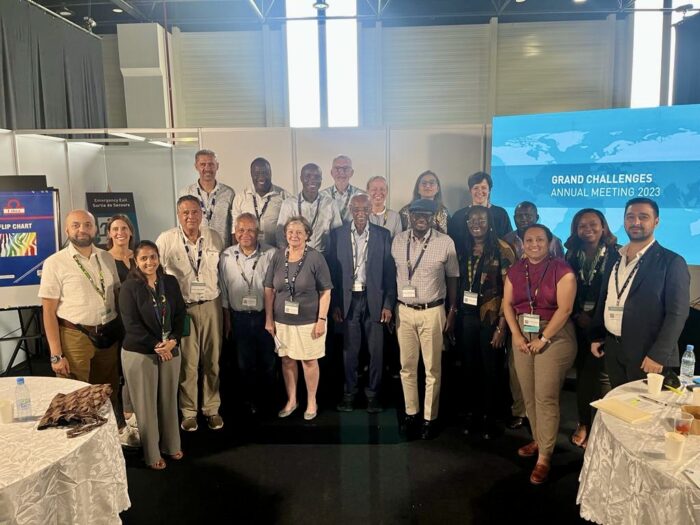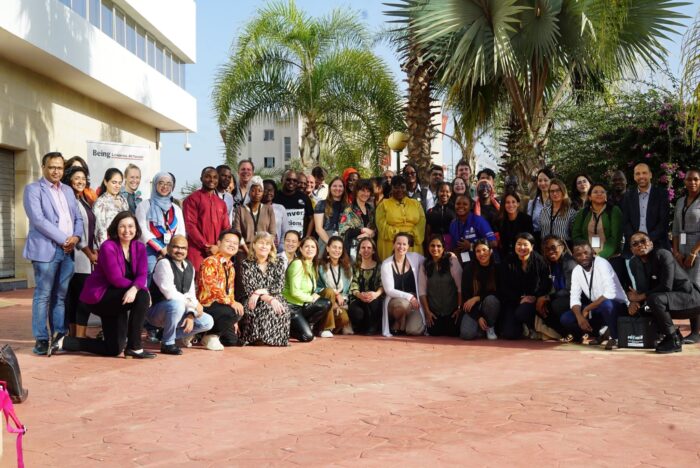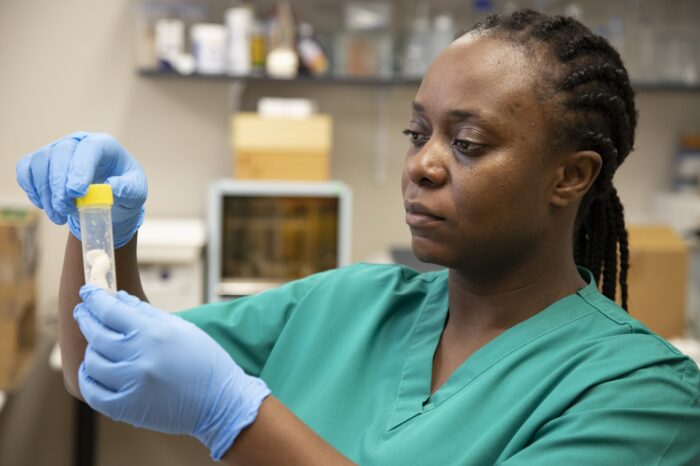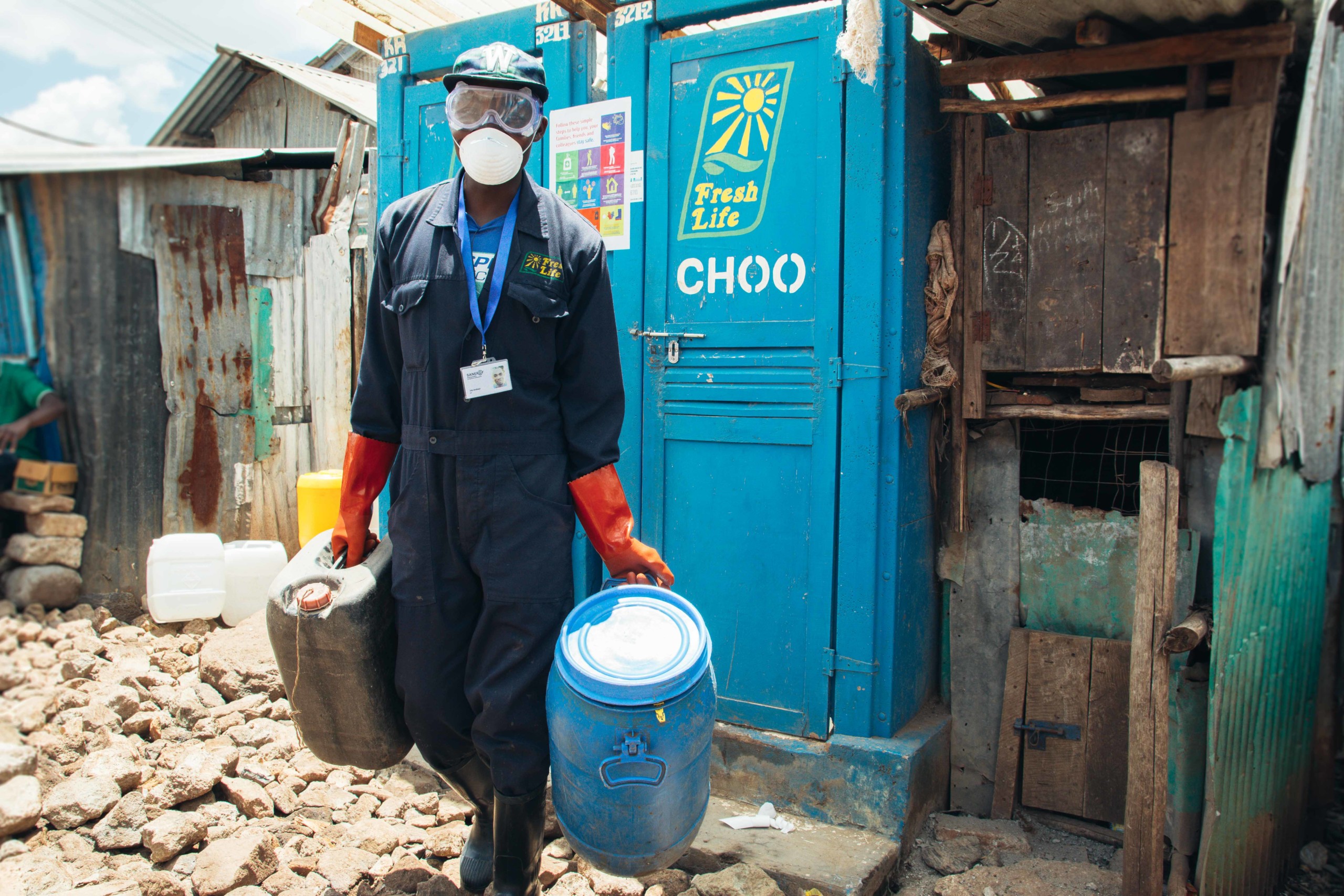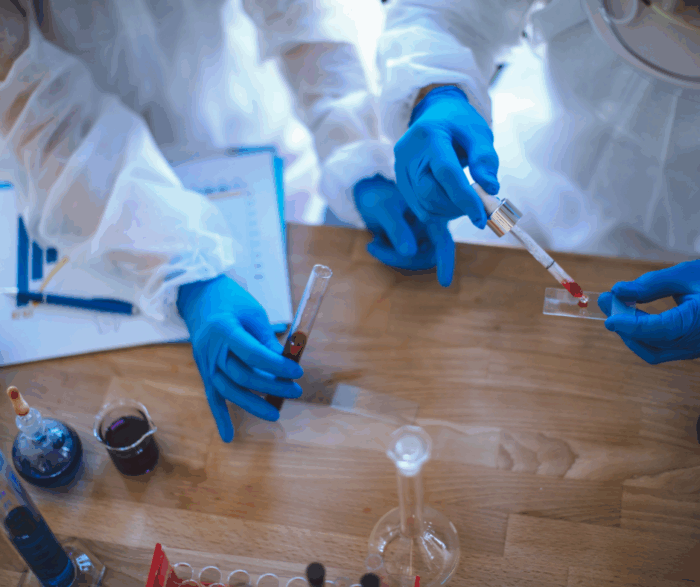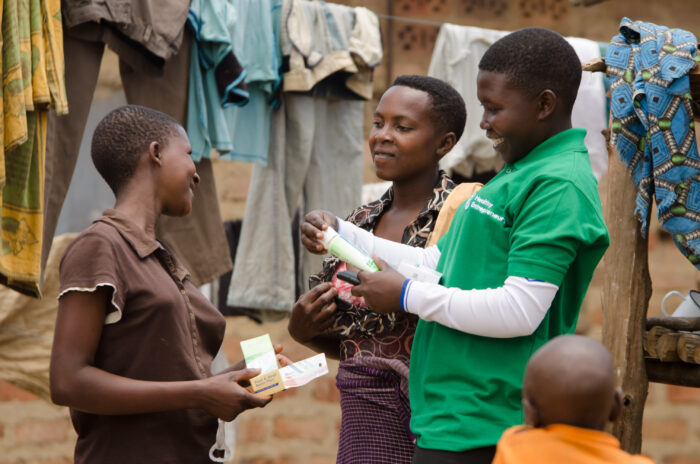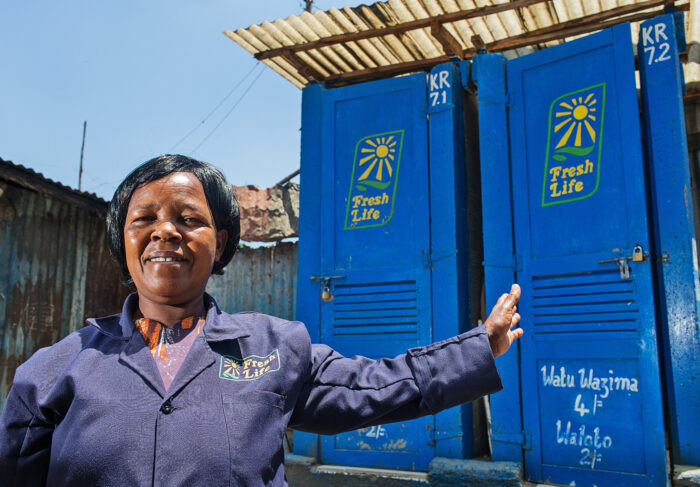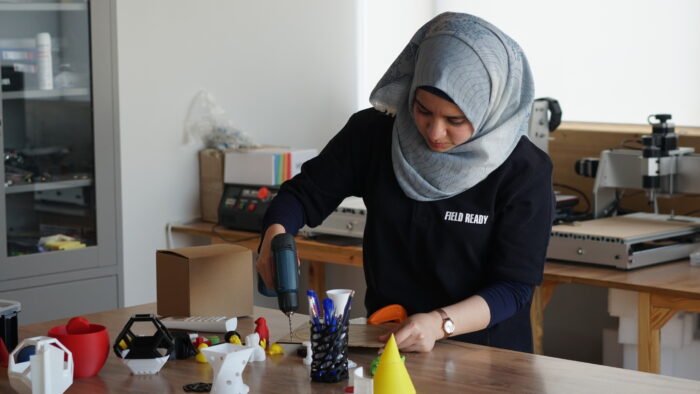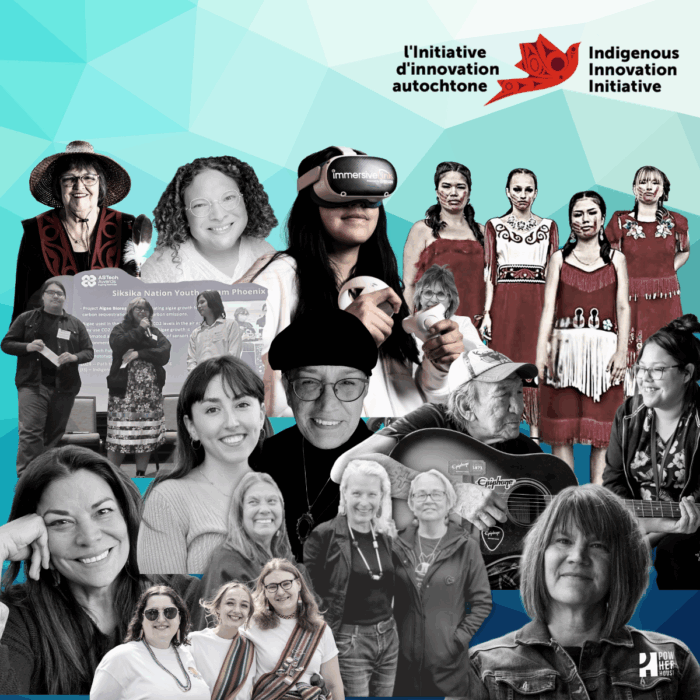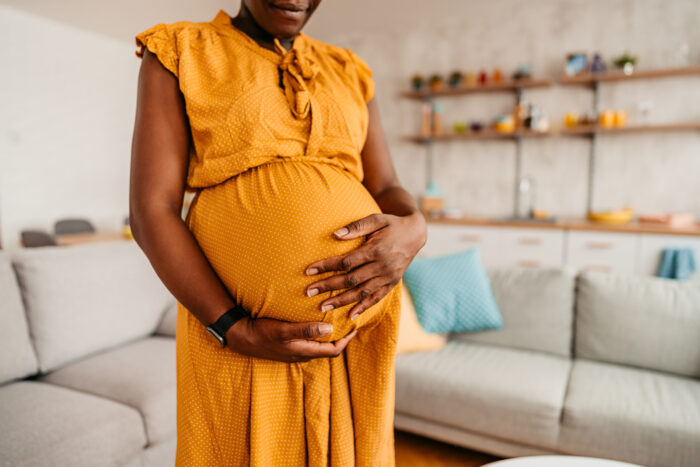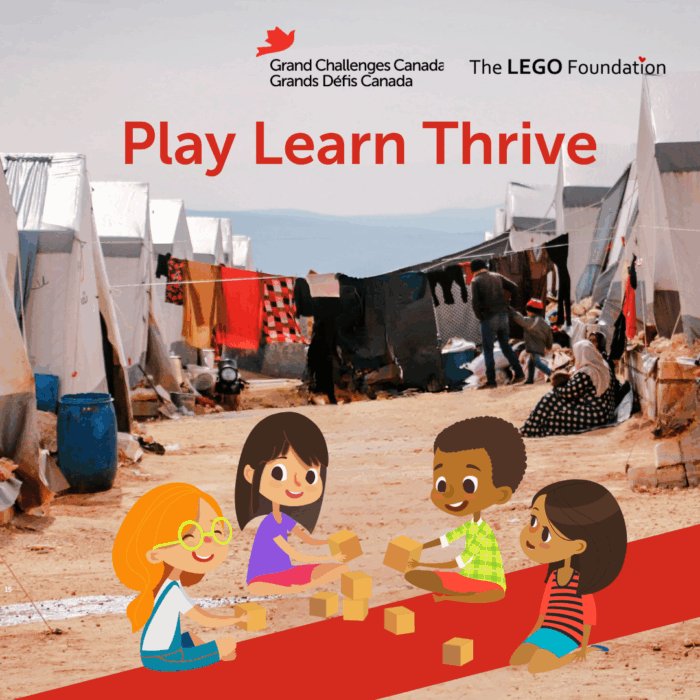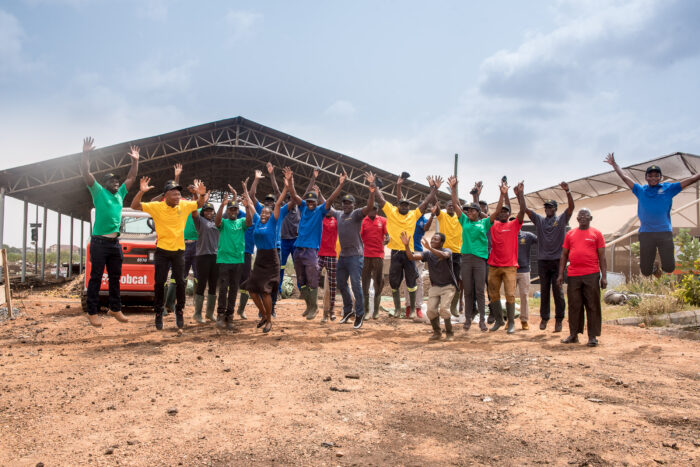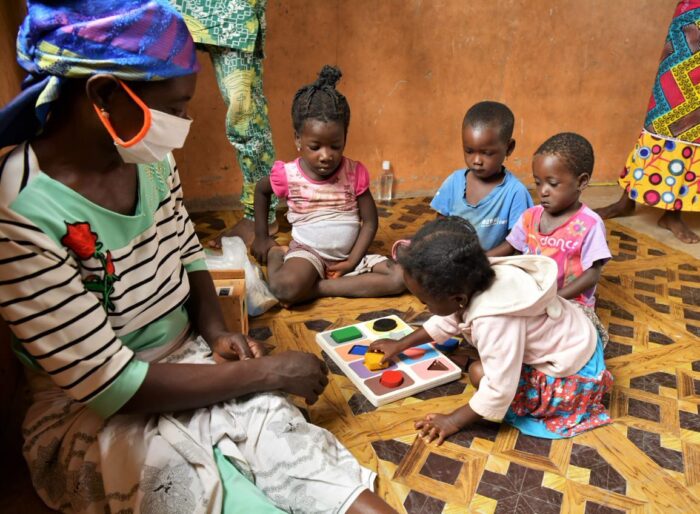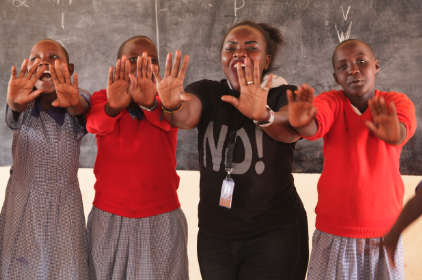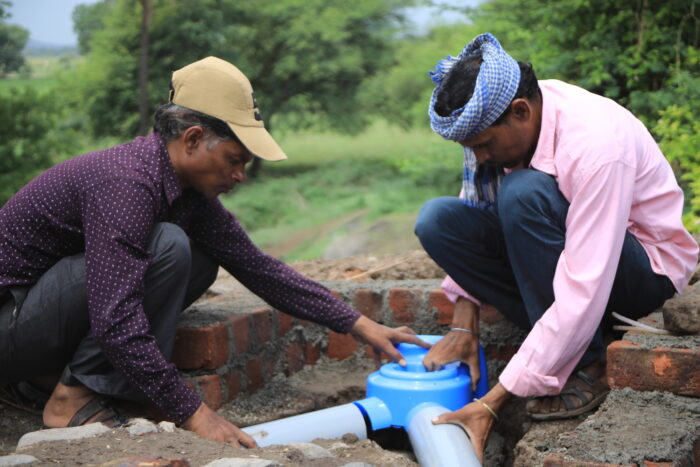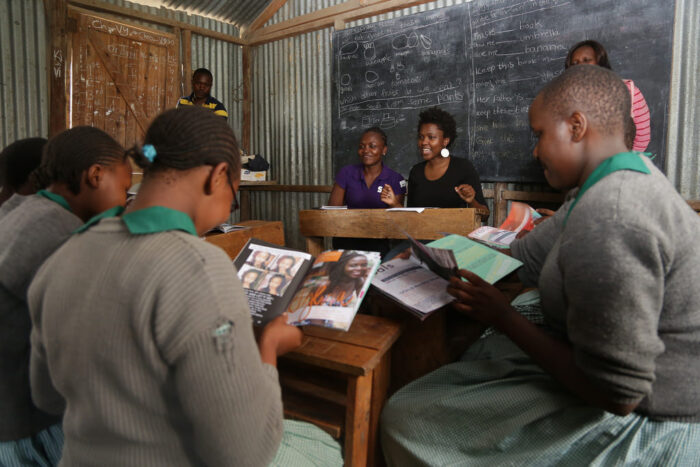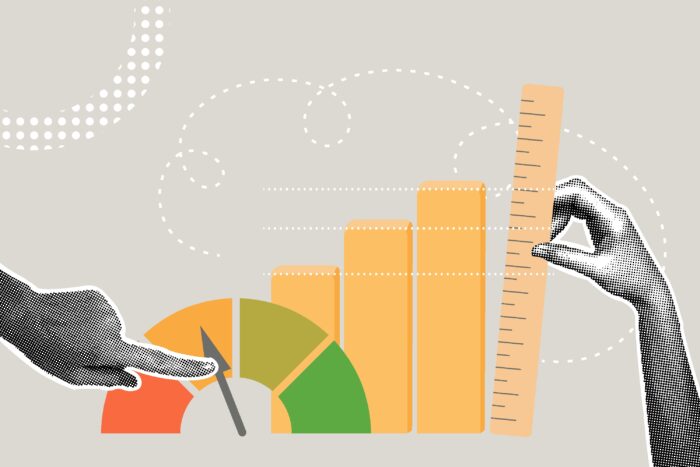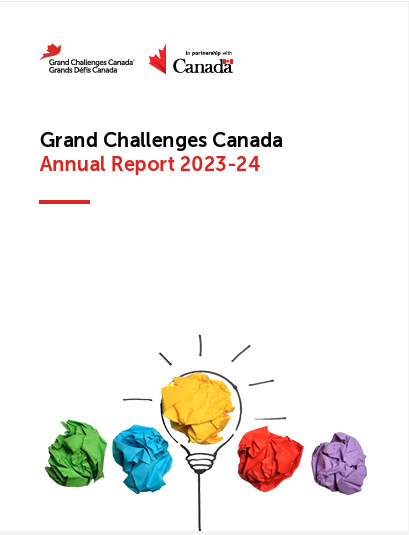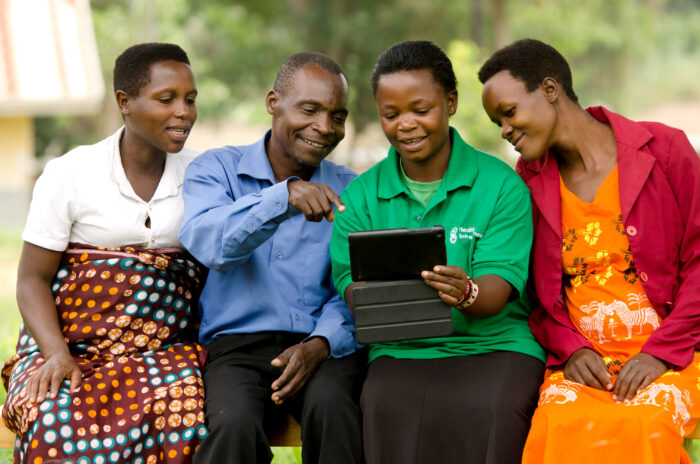
Dakar, Senegal (December 3, 2024) — We are proud to announce the groundbreaking new innovations selected in Grand Challenges Senegal’s first two funding calls. The selected projects address epidemic intelligence, surveillance, and outbreak response, as well as the use of artificial intelligence (AI) to improve global health. The projects are being supported through a collaboration between Grand Challenges Senegal (GC Senegal) and Grand Challenges Canada (with funding from the Government of Canada) to advance health systems and tackle pressing health issues in Senegal and the Economic Community of West African States (ECOWAS) region.
GC Senegal, hosted by the Institut Pasteur de Dakar (IPD) Foundation, was launched in late 2022 with a vision to enable the next set of breakthroughs in discovery and translational life science in West Africa. With seed funding from Grand Challenges Canada, the Gates Foundation, and the Pasteur Network, GC Senegal is building on the collaborative advantage of the global Grand Challenges network to strengthen health systems.
The projects awarded in GC Senegal’s first two funding calls apply leading-edge science, AI-driven solutions, and community-based approaches to deliver important advancements in disease prevention, early detection, and healthcare education. Projects will address critical needs in epidemiology and public health by mobilizing the strengths of diverse stakeholders, including academic institutions, healthcare providers, and technology developers.
With a shared vision to improve health outcomes for communities in Senegal and beyond, they are bringing together academic institutions, healthcare providers, and technology developers to test bold ideas to understand and prevent disease outbreaks and build resilience for vulnerable populations across the region.
GC Senegal is driving advances in health surveillance, diagnostics, and data-driven decision-making. With Grand Challenges Canada’s support funding and capacity-building support, the team is unlocking new pathways for health innovation across the region.
“The launch of Grand Challenges Senegal, in close collaboration with Grand Challenges Canada and the Gates Foundation, is enabling talented researchers in Senegal and across the region to secure funding for innovations that are relevant to the burden of disease we observe regionally. Public health challenges can only be truly addressed with interventions and solutions appropriate for the context in which these challenges manifest. Grand Challenges Senegal will fund innovations designed upfront for the deployment of these innovations in the unique settings in which they will be introduced and scaled.” — Dr Joe Fitchett, Senior Adviser for Biotechnology at the Institut Pasteur de Dakar.
“These projects mark a significant advancement in healthcare innovation across West Africa, leveraging technology, local expertise, and research capacity to address critical public health challenges. By tapping into local solutions, these innovations will improve access to valuable tools and foster healthier, more resilient communities.” —Dr. Karlee Silver, CEO of Grand Challenges Canada.
“We believe innovation is key to addressing gaps and can lead to substantial improvements in global health outcomes, helping to build more resilient health systems. Through Grand Challenges Canada, Global Affairs Canada is proud to support locally developed innovations as well as leveraging artificial intelligence to optimize scarce healthcare resources in Senegal and throughout West Africa, in collaboration with Institut Pasteur de Dakar. These innovations have the potential to transform health systems and save lives. Together, we can create a healthier, more resilient future for all.“ — Marcel Lebleu, Canadian Ambassador to the Republic of Senegal.
About the selected innovations:
Round 1: Interventions to enhance epidemic intelligence, surveillance, and outbreak response
GC Senegal’s inaugural funding call focuses on fortifying health systems and enhancing disease detection across Africa, with a focus on the ECOWAS region, by employing novel approaches in diagnostics, surveillance, and healthcare education. From mobile-based systems for infectious disease testing to rapid diagnostic tools for viral infections, these initiatives strengthen public health responses and resilience in at-risk communities. By integrating advanced technology and community-driven strategies, this cohort lays a foundation for scalable health solutions across the continent.
- Centre for Health System Strengthening (CfHSS)
Improving Access to Epidemic Prone Infectious Disease Tests through Strengthening of the Sample Referral System in Ghana Using Mobile-Based Application
Ghana | Infectious diseases | Health system strengthening
The Centre for Health System Strengthening (CfHSS) project aims to enhance the sample referral system for epidemic-prone infectious disease testing in Ghana. By developing, testing, and implementing a mobile-based application, this initiative seeks to streamline the referral process, enabling primary health centers to efficiently request and transport samples to specialized laboratories. The app will provide real-time tracking and updates, reducing delays in diagnosis and treatment. This approach will not only increase the volume of referred samples but also improve turnaround times for test results, thereby strengthening the overall healthcare response to infectious disease outbreaks.
- Institut Pasteur de Dakar
Development of a Rapid Molecular Detection Test for Measles Virus Diagnosis
Senegal | Infectious diseases | Diagnostics innovation
At the Institut Pasteur de Dakar, the project team is developing a rapid molecular diagnostic test for measles on lateral flow strips and in cassette form, using CRISPR technology, previously used mainly in the field of genome editing. The end product will enable rapid, highly sensitive diagnosis, and could potentially offer a cheaper alternative to current diagnostic methods in the future. This will significantly boost the level of measles virus surveillance, particularly in low-resource environments. The team plans to validate the test across various healthcare settings, ensuring its accessibility and reliability and will conduct training for healthcare professionals to facilitate prompt and accurate diagnoses.
- Institut Fondamental d’Afrique Noire
Metagenomic Wastewater Surveillance for Pathogen Detection and Outbreak Prevention
Senegal | Environmental health | Pathogen detection
The Institut Fondamental d’Afrique Noire is pioneering metagenomic wastewater surveillance to detect pathogens and prevent outbreaks in Senegal. By analyzing environmental samples, including wastewater and surface water, this innovative approach complements traditional clinical surveillance. It allows for real-time monitoring of public health threats by identifying pathogens circulating in the community. The project aims to map pathogen distributions and provide critical insights into circulating diseases, enhancing the country’s ability to respond proactively to potential outbreaks. Collaboration with local health authorities will be key to integrating findings into public health policy and practices.
- Université Gaston Berger de Saint-Louis
Artificial Intelligence-Based Outbreak Early Warning System for Rift Valley Fever Detection (AIRFARE-EWS)
Senegal | Infectious diseases | Vector-borne disease threats
The Université Gaston Berger de Saint-Louis is developing the AIRFARE-EWS, an artificial intelligence-powered early warning system for detecting Rift Valley Fever (RVF) outbreaks. By integrating diverse data sources—including environmental, meteorological, and livestock health information—the system will enhance the capacity for early detection and timely response to RVF threats. Machine learning algorithms will analyze trends and patterns to predict outbreaks before they occur. The project also includes the development of a mobile application for monitoring disease spread, providing farmers and healthcare workers with real-time alerts, ultimately aiming to safeguard both human and animal health.
- Institut Pasteur de Dakar
Combination of Biomarker Detection and Metagenomic Sequencing for Viral Surveillance in Kedougou, Eastern Senegal
Senegal | Viral infections | Diagnostics innovation
The Institut Pasteur de Dakar is advancing viral surveillance in Kedougou through this innovation which combines biomarker detection with metagenomic sequencing. This project aims to enhance the detection of viral infections while optimizing resource use through better sample selection. By implementing a rapid diagnostic test focused on specific viral markers, the initiative strives to improve public health interventions and reduce the impact of viral outbreaks in the region. Training healthcare workers on the use of these advanced diagnostics will ensure timely identification of viral infections and facilitate appropriate responses.
- École Polytechnique de Thiès
Data Collection System and Information Research for Epidemiological Decision-Making
Senegal | Public health | Health information systems
The École Polytechnique de Thiès is creating a comprehensive data collection system to support epidemiological decision-making. This initiative will gather and analyze relevant health data, including disease incidence, vaccination rates, and environmental factors, allowing healthcare professionals and policymakers to make informed decisions in real time. The project will also develop a multilingual chatbot, in French and Wolof (Senegal’s first two languages), that will ultimately serve as an intelligent search engine. This chatbot will be accessible to health professionals as well as ordinary citizens wishing to access reliable, secure, accurate, and credible information on a given disease.
- Institut Pasteur de Dakar
Rapid Molecular Detection of Yellow Fever Virus at the Point of Care
Senegal | Infectious diseases | Rapid diagnostics
This project team at the Institut Pasteur de Dakar is developing a point-of-care rapid diagnostic test for the molecular detection of the Yellow Fever virus. This initiative aims to enable timely diagnosis and effective outbreak management by providing quick results in clinical settings. By raising awareness and integrating this technology into healthcare facilities, the project seeks to strengthen the surveillance and response systems for Yellow Fever in Senegal, particularly in high-risk areas.
- One Health Lessons
Community disease surveillance using an innovative One Health approach
Senegal | One Health | Community surveillance
One Health Lessons (OHL) is partnering with the University Assane Seck of Ziguinchor (UASZ) on this project to pilot a community-level One Health education network and reporting system (through a mobile health platform), rooted in the education space, to effectively undertake outbreak intelligence and surveillance. Training and implementation will target the community of Sédhiou, in Senegal’s Casamance region. The main goal will be to enable local health authorities to have access to more accurate real-time information, that is effectively collected through a community-led surveillance model, for the purposes of more informed decision-making.
Round 2: Catalyzing Equitable Artificial Intelligence (AI) Use to Improve Global Health
Artificial Intelligence (AI) has the potential to transform healthcare around the world. But as AI technology continues to advance, there is an urgent need to position low- and middle-income countries (LMICs) to lead on the design and co-creation of AI-enabled technologies. With this in mind, Grand Challenges (GC) network partners came together to discuss the need for an equitable and responsible approach to the use of AI specifically Large Language Models (LLMs) in LMICs. Six GC partners coordinated a joint funding call as a follow-up to an initial call by the Gates Foundation. This call represents collaborative steps towards identifying, nurturing, and catalyzing the creativity, energy, and skills that researchers, implementers, governments, and technical partners have demonstrated in solving specific challenges in their countries and regions through LLMs.
GC Senegal’s second round of innovative projects focuses on leveraging AI to improve health access, diagnosis, treatment, and education. From enhancing maternal health to improving disease surveillance, these ten projects showcase the critical role AI can play in shaping a healthier future. GC Senegal’s funding call was supported by Grand Challenges Canada, the Gates Foundation, and the Pasteur Network.
- Dakar Institute of Technology
Weerwi – AI-Driven Counseling for Young Girls Using a Large Language Model
Senegal | Reproductive health | AI chatbot technology
The Weerwi mobile application provides reproductive health information to young girls in Senegal and West Africa, currently handling around 10,000 monthly interactions. Upgrading its chatbot with generative AI and an advanced Large Language Model (LLM) will enable more personalized advice, considering previous interactions, and a familiar communication style to better target young girls on prevention and awareness. In addition, the team will implement a content recommendation algorithm based on the user’s interactions with the chatbot. Personalized notifications with a proposal for relevant content (video, etc.) will be sent to users.
- Station d’Innovation Aquacole
Artificial Intelligence for Schistosomiasis Control
Senegal | Infectious diseases | Disease mapping and AI
This project addresses schistosomiasis, also known as bilharzia, an infection caused by a parasitic disease impacting millions in low-income regions. Collaborating with U.S. universities and the Centre of Excellence in Mathematics, Computer Science, and ICT (CEA-MITIC) at Senegal’s Gaston Berger University (GBU), this initiative leverages drone and satellite imagery with AI models to map high-risk areas, enabling targeted interventions. This AI approach is set to transform schistosomiasis control strategies, while also training local students in innovative disease surveillance techniques.
- Haskè Ventures SAS
AI-Driven Patient Intake System for Primary Healthcare
Senegal | Primary healthcare | AI-based triage
Addressing challenges in patient intake, Haskè Health is implementing an AI-powered system to improve triage accuracy and reduce wait times in Senegal’s primary healthcare facilities. By using a Medical Large Language Model to assess symptoms and prioritize care, the project will enhance patient experiences and alleviate healthcare provider workloads.
- TC4A Afrique Francophone LTD SARL
Transforming Healthcare Education: AI-Powered Access to Clinical Guidelines and SOPs
Senegal | Healthcare education | AI-driven training
This innovation incorporates Large Language Models into the Medical Learning Hub (MLH), TC4A’s specialized e-learning platform designed for healthcare providers, to generate personalized assessment questions based on clinical guidelines. This tool enhances comprehension of SOPs among healthcare professionals, improving adherence to healthcare standards. By ensuring ongoing professional development, the project will strengthen the skills of healthcare workers across Francophone Africa.
- Centre Pasteur du Cameroun
Multilingual Health Communication Chatbot for Fulfulde-Speaking Communities
Cameroon | Health literacy | AI chatbot technology
Focused on Fulfulde-speaking communities, this project utilizes AI to develop a multilingual chatbot delivering real-time health information in local languages. Equipped with offline capabilities, the chatbot will facilitate a better understanding of health topics, aiming to enhance health literacy and lower health risks for communities with limited internet access.
- Université Gaston Berger de Saint-Louis
Modeling and Monitoring Cardiovascular Health Through Family-Centered Data
Senegal | Cardiovascular health | Family-centered health model
This project promotes a household-centered approach to cardiovascular health, collecting data on lifestyle and environmental factors. Through a health and environment barometer, it will identify family-based cardiovascular risks and encourage family involvement in health decisions, ultimately enhancing adherence to preventive health measures and improving outcomes.
- Université Iba Der Thiam de Thiès
Early Detection of Liver Fibrosis Using Deep Learning
Senegal | Liver health | AI-based diagnostics
To tackle the late diagnosis of liver fibrosis due to Hepatitis B, this project leverages deep learning to create a cost-effective, non-invasive diagnostic tool. Designed to function in low-income settings, the AI model will enhance early detection capabilities, aiming to improve access to timely diagnostics for affected populations across West Africa.
- Kajou Senegal
Ma Santé Au Quotidien (MSAQ) – AI-Enhanced Health Advice for Community Health Workers
Senegal | Community health | AI conversational agent
MSAQ is an AI-driven chatbot that provides community health workers with reliable health information on maternal health, infectious diseases, and more. Utilizing an offline knowledge base, MSAQ will enable health workers to respond with contextualized, verified advice, bridging information gaps and enhancing patient care in remote areas.
- École Supérieure Polytechnique de Dakar
GALSEN DEEP VISION – AI for Early Detection of Strabismus in Children
Senegal | Pediatric health | AI diagnostic app
GALSEN DEEP VISION, a mobile application powered by AI, detects strabismus in children by analyzing facial images for angular deviations. This tool will allow parents and healthcare providers to identify early signs of strabismus, ensuring timely interventions and expanding access to pediatric eye care in underserved areas.
- Institut Pasteur de Bangui
The Village: AI-Driven Global Health Collaboration and Decolonization Platform
Central African Republic | Global health | AI collaboration network
The Village platform uses AI to connect healthcare professionals and organizations worldwide, fostering equitable collaboration and mentorship in global health. By promoting resource-sharing and cross-border networking, The Village seeks to democratize access to healthcare knowledge and accelerate advancements in underserved regions.
For more information or to arrange interviews, please contact:
Aziz Froutan
Bilingual Manager, Media Relations and Communications
aziz.froutan@grandchallenges.ca
+1(437)-228-3166
NOTES FOR EDITOR
About Grand Challenges Senegal
Grand Challenges Senegal is a not-for-profit innovation fund, hosted by the Institut Pasteur de Dakar (IPD) foundation. The purpose of Grand Challenges Senegal is to advance the ecosystem for public health innovation in Africa. Grand Challenges Senegal will deploy grant funding to test new ideas led by innovators working in the region and African scientists in the diaspora.
Grand Challenges Senegal was launched by the Government of Senegal in October 2022 with a vision to enable the next set of breakthroughs in discovery and translational life science in West Africa, with seed funding from the Bill & Melinda Gates Foundation, Grand Challenges Canada, and ELMA Philanthropies. Learn more a:t https://grandchallenges.sn/en
About Grand Challenges Canada:
Grand Challenges Canada is dedicated to supporting Bold Ideas with Big Impact®. Funded by the Government of Canada and other partners, Grand Challenges Canada funds innovators in low- and middle-income countries and Canada. The bold ideas Grand Challenges Canada supports integrate science and technology, social and business innovation – known as Integrated Innovation®.
One of the largest impact-first investors in the world, Grand Challenges Canada has supported a pipeline of over 1,700 innovations in more than 100 countries. Since 2010, innovations supported by Grand Challenges Canada have reached more than 80 million people with life-saving or life-improving initiatives who would otherwise not have had access. Learn more at www.grandchallenges.ca
